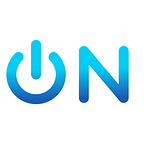Introducing the (World’s First) Ethical Operating System
A toolkit for anticipating future risk and building a better tech ecosystem
By Paula Goldman and Raina Kumra, Omidyar Network
It’s no longer enough to simply profess an optimistic desire that the tech we build will have a positive effect on the world. We must create a system of design and development that places real value on ethical thinking from the outset, by incorporating future risk analysis and mitigation directly into our workflow.
Once upon a time, good intentions were plenty for the people building the internet. They built tech they hoped would save the world, or at least disrupt it. Even if something went wrong, even if that tech wound up doing more harm than good — well, hey, no one could have seen that coming, right? Take the internet itself. Connectivity! A smaller planet. A free exchange of goods and ideas. One big community for everyone, totally accessible, totally inclusive. A warmer, fuzzier future.
Of course, it didn’t quite work out that way.
These days, if you work in tech in any capacity, you’re probably pretty familiar with the fact that good intentions are no longer sufficient, even if your tech is used in ways that were practically impossible to anticipate or even imagine. Which leaves developers of cutting-edge, potentially life-changing tech in something of a bind.
We can’t predict the future. But that shouldn’t mean we can’t systematically build safeguards against future risk directly into our design and development processes.
So, what can be done? Is it possible for tech developers to anticipate future risks? Or are these future risks so unknowable to us here in the present that, try as we might to make our tech safe, continued exposure to risks is simply the cost of engagement?
Today, in collaboration with Institute for the Future (IFTF), a leading non-profit strategic futures organization, Omidyar Network is excited to introduce the Ethical Operating System (or Ethical OS for short), a toolkit for helping developers and designers anticipate the future impact of technologies they’re working on today. We designed the Ethical OS to facilitate better product development, faster deployment, and more impactful innovation — all while striving to minimize technical and reputational risks. The hope is that, with the Ethical OS in hand, technologists can begin to build responsibility into core business and product decisions, and contribute to a thriving tech industry.
The Ethical OS is already being piloted by nearly 20 tech companies, schools, and startups, including Mozilla and Techstars. We believe it can better equip technologists to grapple with three of the most pressing issues facing our community today:
- If the technology you’re building right now will someday be used in unexpected ways, how can you hope to be prepared?
- What new categories of risk should you pay special attention to right now?
- Which design, team, or business model choices can actively safeguard users, communities, society, and your company from future risk?
As large sections of the public grow weary of a seemingly constant stream of data safety and security issues, and with growing calls for heightened government intervention and oversight, the time is now for the tech community to get this right.
We created the Ethical OS as a pilot to help make ethical thinking and future risk mitigation integral components of all design and development processes. It’s not going to be easy. The industry has far more work to do, both inside individual companies and collectively. But with our toolkit as a guide, developers will have a practical means of helping to begin working to ensure their tech is as good as their intentions.
We encourage your feedback on the Ethical OS toolkit. Inquiries regarding training and workshops related to the toolkit are encouraged, by contacting media@ethicalos.org. Join the conversation on Twitter using the hashtag #EthicalOS.
* This article first appeared on Techonomy.
